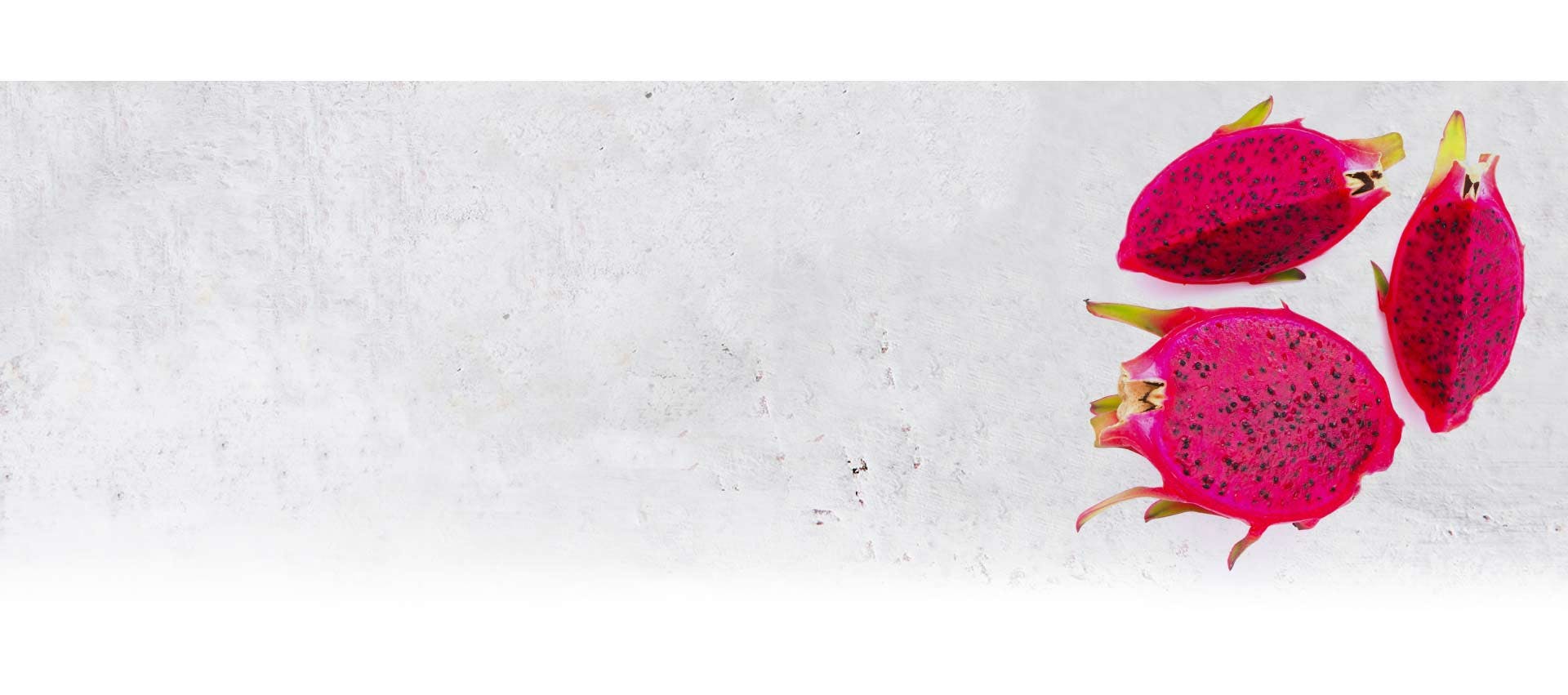Pitaya, a colourful and natural
superfood
What are the benefits of consuming pitaya?
Discover the benefits of this curious fruit, rich in Vitamin C, antioxidants, Omega 3 and 6 and a source of minerals.
Antioxidant
The pigment in pitaya is rich in betalains, a powerful antioxidant.
Good for the heart
Fights ageing
Strengthens the immune system
Pitaya's benefits range from health to sustainability
The pitaya is the fruit of a cactus of the Cactaceae family, native to Mexico, Central and South America, but also now present in Asia. Being a cactus, it is able to tolerate extreme weather conditions and resist pests.
The growing interest in this superfood has developed agriculture in dry areas with poor soil, which otherwise would not be utilised or harnessed. Therefore, pitaya supports agricultural development and local growth in less favoured areas.
Although the pulp of the fruit is the main interest of this exploitation, the pitaya peel can also be used in a variety of ways. Its bright colour makes it a good source of natural dyes, with many uses. The flour, made from the husk, could become a substitute for fat in foods.
At Native, we choose fruit grown on sustainable plantations and support local communities.
Discover how you can consume pitaya
Discover Pitaya Native Foods
Searching for ideas?
Do you want to discover new ways to enjoy the taste of Native Foods products? Creativity has no limits in our recipes. Delight yourself!
Frequently Asked Questions
What is pitaya?
Pitaya is also known as dragon-fruit, night-flower, jelly-fruit and night-queen. There are three varieties of pitaya: fuchsia peel with white flesh, fuchsia peel and flesh, and yellow peel with white flesh. They all have small and very abundant black seeds in the pulp.
Where does pitaya come from?
Colombia and Mexico are the world's largest producers of pitaya. However, despite being native to Mexico, Central and South America, it is a fruit planted even in Asia.
Why is Pitaya considered a superfood?
Pitaya is nicknamed a "superfood" because of its nutritional benefits. Its properties are very varied and include a generous dose of vitamin C and antioxidants, for example.
Why is Pitaya a sustainable product?
Pitaya can be grown in dry areas and on poor soils and therefore its plantation boosts the use of land that cannot be used for more demanding plantations. If we think about climate change and the increasing lack of water, a fruit as undemanding as pitaya becomes very promising.
